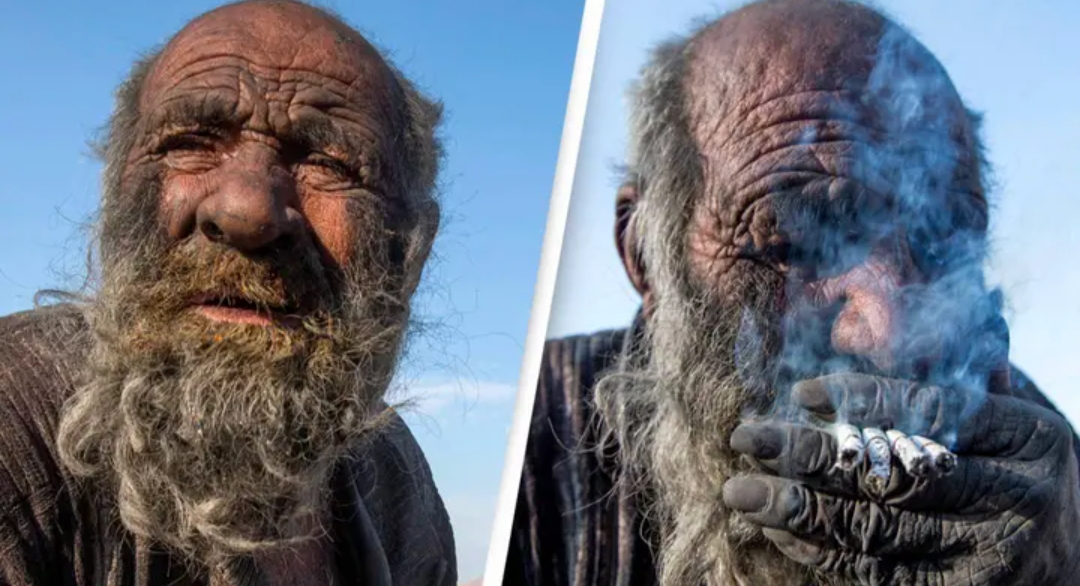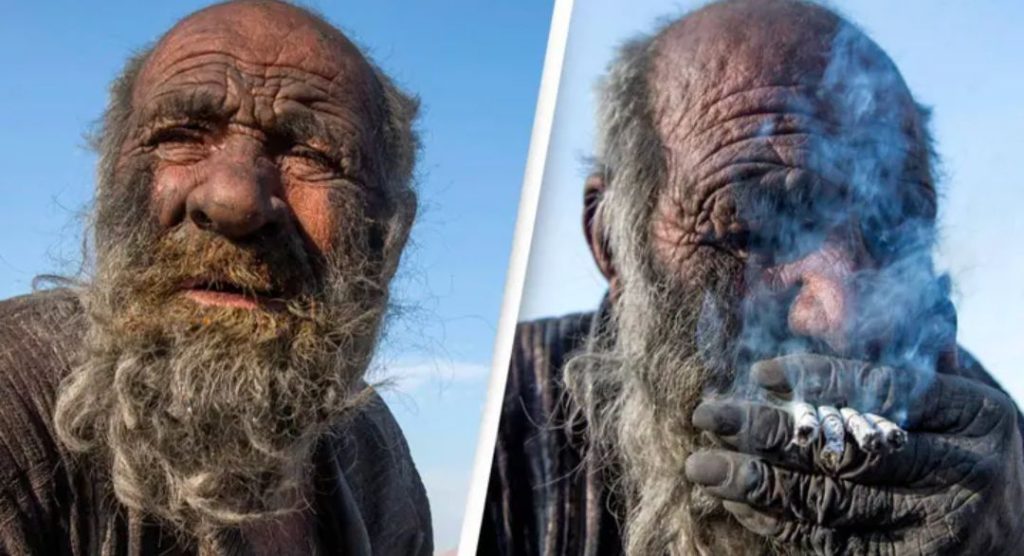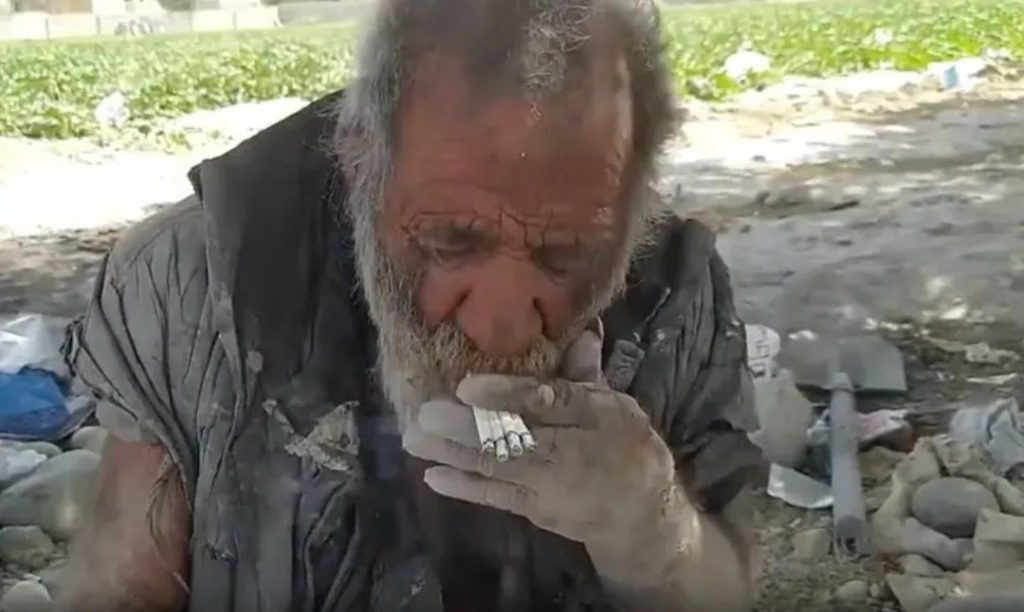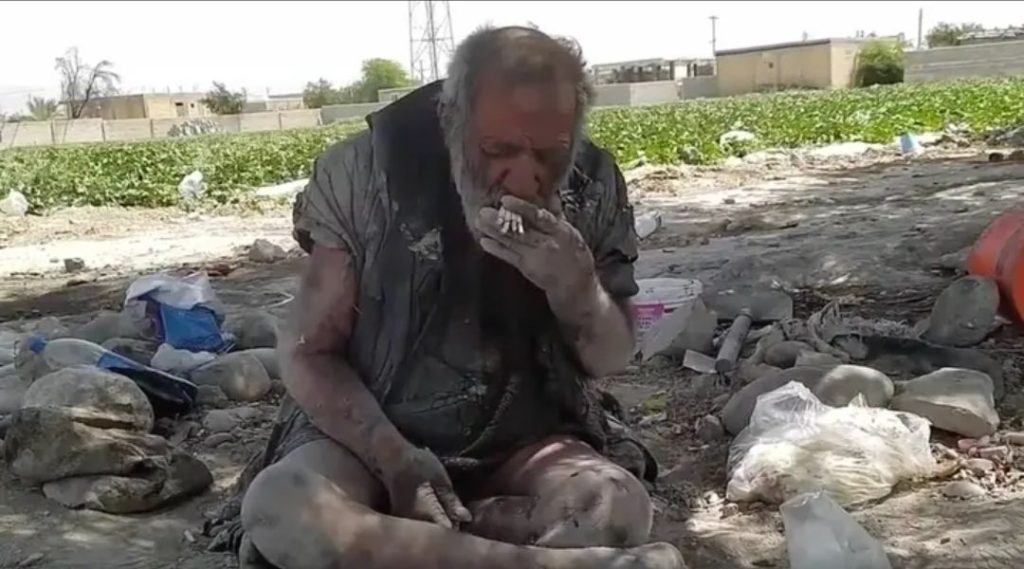
While you’d think not washing yourself properly for years on end might negatively affect your life expectancy, the ‘world’s dirtiest man’ lived to the age of 94.
Amou Haji went a staggering 60 years without washing himself with soap and water.

Amou lived in a cinder-block shack in Iran and, as well as not washing, he had quite an unusual lifestyle in general.
According to the Tehran Times, the elderly man would eat roadkill and smoke a pipe filled with animal excrement.
Apparently porcupine meat was a particular favorite of his, and he’d drink a whopping 1.5 gallons of water a day.
He was also under the impression that washing would do more harm than good and actually make him ill.

Known to locals who lived nearby to his shack, Amou was said to have been reluctant to wash because he had experienced ’emotional setbacks in his youth’.
But in the months leading up to his death, villagers had finally persuaded Amou to have a wash.
Years of going unwashed left his skin filled with ‘soot and puss’.
Iran’s IRNA mews agency say he fell ill shortly after washing again for tyhe first time and died a few months later.
He did keep his hair trimmed but, as you’d probably expect, he didn’t do so using a pair of scissors. Instead, Amou is said to have burnt his hair off.

It’s evident that that Amou had some kind of phobia of washing – something that’s known as ablutophobia.
Speaking about the phobia to The Blade, Dr. Siva Yechoor from The Toledo Clinic said: “Ablutophobia is extremely rare. Right now, we see it more often in people who are older.
“They refuse to get cleaned up, but it’s more of an avoidance behavior than a phobia.”
As to who he’s seen develop the condition, Dr. Yechoor continued: “What happens with them is they are usually younger people who had some sort of traumatic experience.
“We had a man in his 20’s who had an almost death experience in a body of water, and developed this aversion and fear of even going into the shower or taking a bath.”
Genetics and brain function may also play a part in developing ablutophobia, according to Healthline.
Symptoms include sweating, rapid heartbeat, panic attacks and difficulty breathing.
Ablutophobia seems to be treated like many other mental health conditions – through therapy. A person might be advised to try cognitive behavior therapy (CBT), as well as exposure therapy.
Betablockers or sedatives may also be prescribed.




